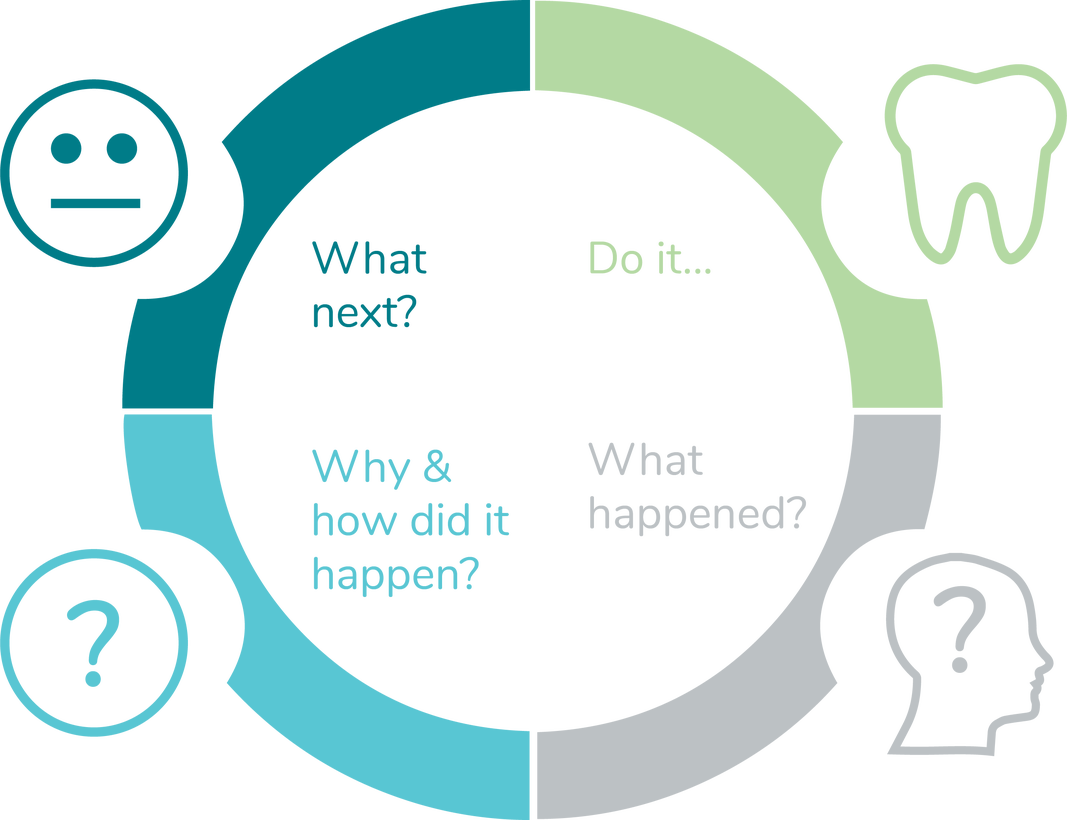Section 1 - Mentorship Programme / 1.1 Introduction to Mentorship
The General Dental Council require students to learn in a supported and standardised manner. This position from the regulator recognises the essential role that mentors play in the education of trainee clinicians.

Podcast
Mentorship is an essential component of clinical education. Mentorship facilitates students in the transition from clinical theory to clinical practice. With effective mentorship a student can achieve practical learning in a safe, controlled and constructive manner.
Learning Methods
Adult and child learning are referred to as andragogy and pedagogy respectively. Traditionally, these were viewed as two separate fields, however, crossovers between these two fields are increasingly common. In professional mentorship it is the art and science of andragogy that is important. A model for successful andragogic education (Knowles,1980) is thought to include:
- RATIONALE: Letting learners know why something is important to learn
- SETTING DIRECTED STUDY: Showing learners how to direct themselves through information
- DIALOGUE: Relating the topic to the learner’s experiences
- ENCOURAGING: People will not learn until they are motivated to learn
- SAFE ENVIRONMENT: Helping learner overcome inhibitions, behaviours and preconceived beliefs about learning
Experiential Learning
When mentoring a student, the mentor is guiding the student through the process of experiential learning. Experiential learning also known as is the process of learning through experience, and is more specifically defined as "learning through reflection on doing" Patrick (2011)

Figure 1: An illustration of the experiential learning process
The reflective element of experiential learning is essential for embedding the students learning through practical activities. It is the role of the mentor to facilitate the student reflection through guidance and development of an action plan. This will allow the student to engage with the observe, rehearse and practice learning cycle that is a critical component of experiential learning.
Mentors should seek to identify appropriate learning opportunities for their students. An effective mentor will identify opportunities that are appropriate to the student’s abilities and experiences. In practice, this means starting the student slowly, with non-critical tasks, building their confidence and abilities at a pace appropriate for the learner.
With the correct learning opportunities identified, the mentor will be able break them down to facilitate learning before (planning), during (feedback) and after (reflection) the clinical task.
References
Patrick, F (2011). Handbook of Research on Improving Learning and Motivation. p. 1003. ISBN 978-1609604967.
Knowles, M. S. (1980). The modern practice of adult education: From pedagogy to andragogy. Englewood Cliffs: Prentice Hall/Cambridge.